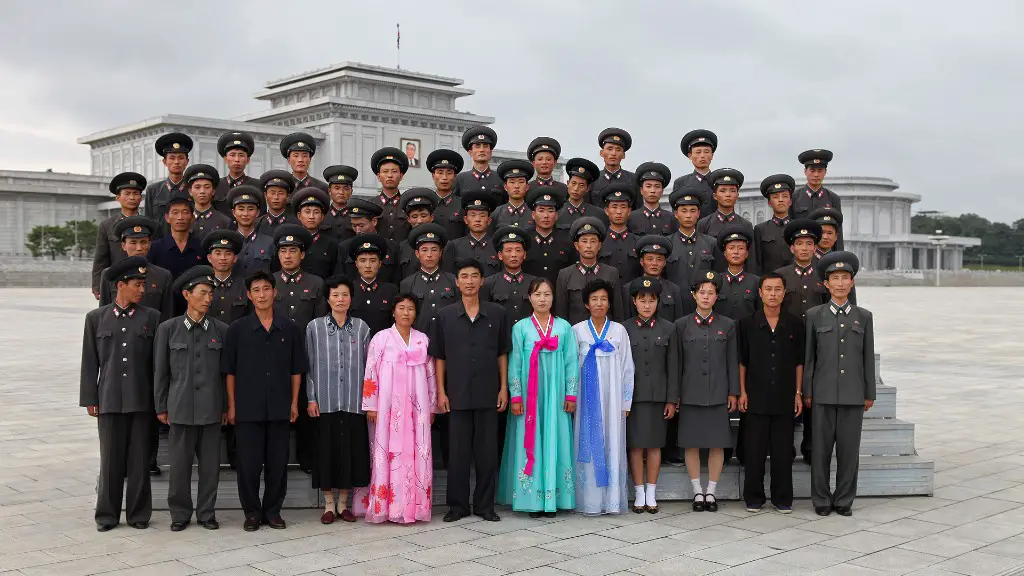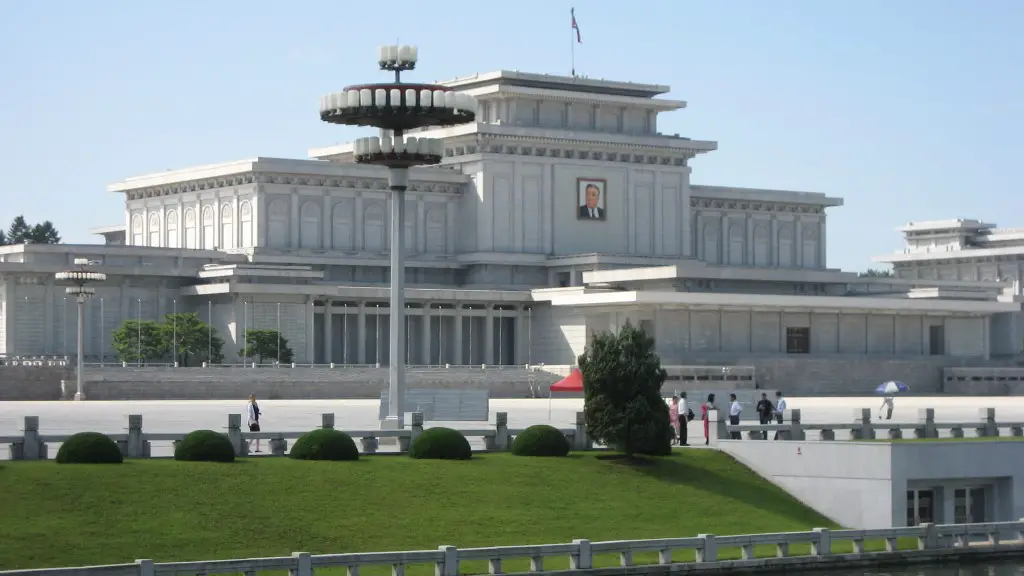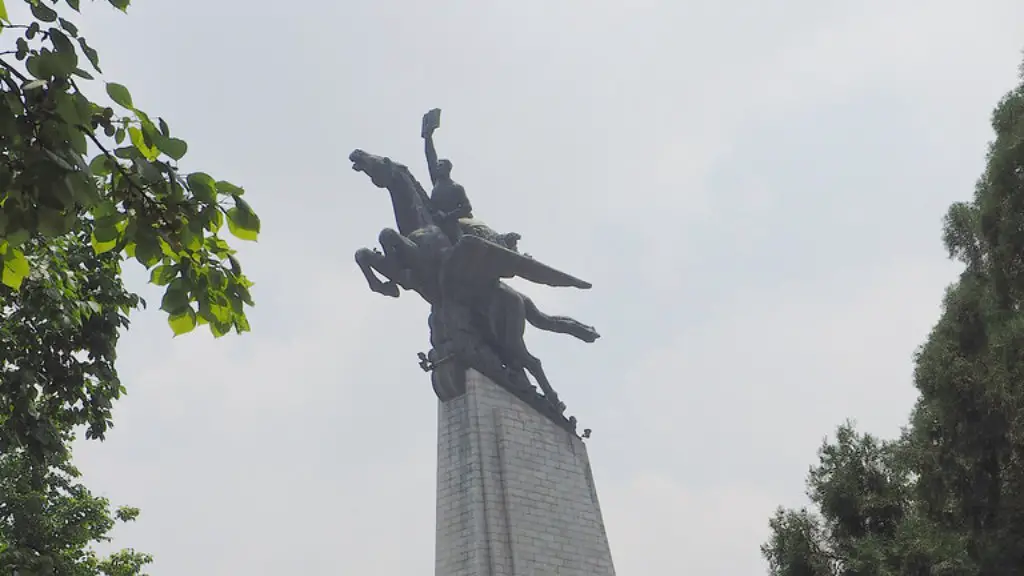Political Crisis
The widely debated issue of North Korea and whether or not it poses a threat has long been a contentious topic. North Korea remains one of the most isolated countries in the world, having gone through the Korean War, the Cold War and a divided Korea. In spite of having once been a relatively similar nation, North Korea has changed dramatically since then and is now seen by many in the world as an unpredictable, unpredictable and potentially dangerous nation. In recent years, tensions have risen, as North Korea has expanded its nuclear arsenal and launched long-range missiles. This has added fuel to the debate over whether or not North Korea poses a threat to international security.
Regional Tensions
The U.S. and many of its allies are the main players in the current debate, as they have the most to lose should North Korea become a nuclear power. As such, the U.S. has stepped up its diplomatic efforts with North Korea and has imposed various sanctions in attempts to deter the country from pursuing nuclear weapons. However, many experts believe that the policies implemented by the U.S. are not enough to deter North Korea and that a more comprehensive strategy needs to be put in place.
On the other hand, China is seen as a key player in the dispute due to its close proximity to North Korea, its economic ties to the country, and its political influence on the region. China has attempted to alleviate tensions by calling for denuclearization and proposing a plan for a peaceful solution. Furthermore, China has also provided aid to North Korea in the form of humanitarian aid and investments in the country’s economy in an effort to keep the country in line.
North Korea’s Strategy
Despite the efforts from both sides, it remains unclear as to whether North Korea poses a threat or not. North Korea has long maintained that its nuclear weapons are for defensive purposes and that the development of nuclear weapons is essential for the country’s security. Furthermore, the country has also strived to engage in diplomatic dialogue with the U.S. in order to gain economic and political concessions while at the same time maintaining its autonomy.
At the same time, North Korea has shown a willingness to pursue military action. In recent years, the country has carried out multiple missile tests and has threatened a pre-emptive nuclear attack on the U.S. and its allies if it feels its security is threatened. This has led many experts to question the country’s intentions and to conclude that North Korea may in fact pose an imminent threat.
International Community Response
Recently, the UN Security Council has imposed tougher sanctions on North Korea in an effort to place pressure on the country to denuclearize. This has led to a level of tension unseen since the Korean War, with many nations mobilizing their militaries in response to North Korea’s actions. Despite these efforts, it is uncertain if these sanctions will have a lasting impact, as North Korea has shown a willingness to disregard the international community’s pleas and forge onward with its nuclear ambitions.
Role of U.S. & Allies
The U.S. and its allies are in a difficult position, as they must decide between pursuing a diplomatic approach or taking a hard line stance with North Korea. At the same time, the U.S. and its allies must also decide how to manage the threat that North Korea poses, as there is no clear-cut solution. Despite the fact that military action is not yet an option, the U.S. has continued to pursue a policy of “strategic patience” in hopes that North Korea will eventually take the steps necessary to denuclearize and de-escalate tensions.
Geopolitical Unrest
The current situation in the region has created a precarious geopolitical landscape, as North Korea’s unpredictable behaviors can have serious implications on the security and stability of the region. Furthermore, the international community has yet to agree to a unified approach to dealing with the situation, leaving many of the players in a precarious position. Ultimately, it is uncertain what the future holds, but it is clear that the situation must be carefully managed and the international community must be determined to arrive at a peaceful and satisfactory solution.
Nuclear Arms Race
The risk of nuclear proliferation has been an increasing concern in the region, as it is likely that North Korea would seek to provide its allies and other nations with nuclear capability if it is successful in its own nuclear pursuits. This could potentially lead to an arms race in the region, which could have catastrophic consequences for not only the region but the entire world.
In addition, North Korea’s behaviors have raised alarm bells in many countries, as they fear that they could be next in line to face North Korea’s nuclear ambitions. This has led many countries to build up their military presence in the region in order to deter any aggression from North Korea. In the end, these measures may not be enough, and it is uncertain if any nation will be able to prevent North Korea from acquiring a nuclear weapon.
Emerging Technologies
Recent advances in technology have raised further alarms, as these technologies could potentially allow North Korea to develop an even more sophisticated arsenal of nuclear weapons. In particular, North Korea has made strides in the field of intercontinental ballistic missiles, which could have serious implications not only for the region but for the whole world.
Challenges Ahead
The situation with North Korea is extremely complex and will require a nuanced and multi-faceted approach in order to find a suitable resolution. The international community must remain united and determined in its efforts to prevent North Korea from developing nuclear capabilities. Furthermore, the U.S. and its allies must also continue to seek a diplomatic solution to the problem and must remember that military action is not a viable option. Ultimately, it is unclear as to whether or not North Korea poses a genuine threat, but it is clear that this is an issue which requires continued attention and must be taken seriously in order to arrive at a suitable resolution.


